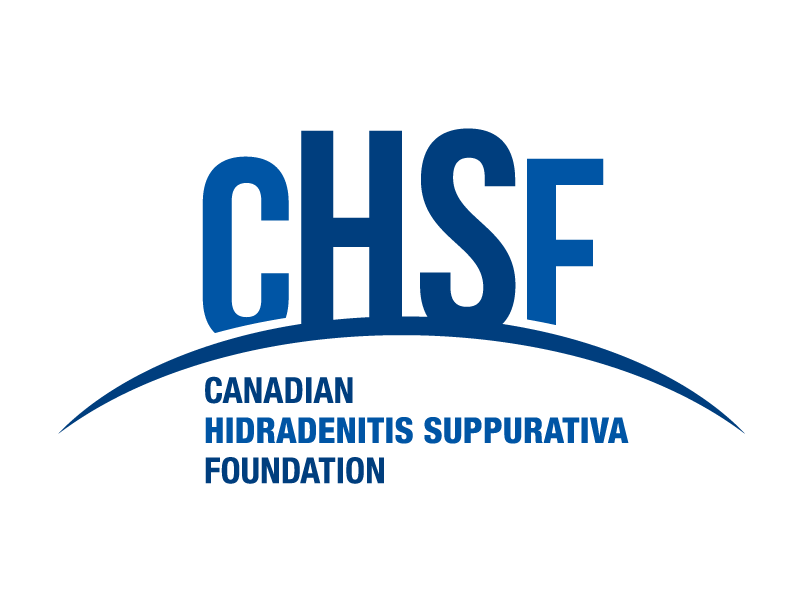For those with Hidradenitis Suppurativa (HS), any relief from symptoms is welcomed. Studies indicate that dietary adjustments can help manage inflammation and reduce HS flare-ups. While not a cure, an inflammation diet may bring significant improvement by minimizing symptom severity and frequency. Explore dietary choices that can potentially alleviate HS symptoms and enhance overall well-being.
There’s no standard Hidradenitis Suppurativa diet, and much research is required to understand what works best for HS patients fully. That means trial and error is often involved in identifying an optimal diet pattern for a patient. Generally, a healthy, nutritious diet plan low in processed foods can help limit inflammation. This is crucial in managing Hidradenitis Suppurativa symptoms. Some patients may also find relief if they eliminate specific food items from their diet.
7 Hidradenitis Suppurativa Inflammation Diet Tips:
Certain food items are thought to worsen Hidradenitis Suppurativa. Although it’s unclear if food causes Hidradenitis Suppurativa (and if so, which ones), food triggers can result in flare-ups or worsen HS symptoms. It’s crucial to note that everyone is different, and there’s no one-size-fits-all Hidradenitis Suppurativa diet. So, discuss the following Hidradenitis Suppurativa diet tips with your doctor and see if you can benefit from dietary changes.

1. Document your food choices to see the specific foods that affect your HS symptoms
Keeping a food diary is an important tool for people with Hidradenitis Suppurativa (HS) to help identify which foods may trigger or exacerbate their symptoms. HS is a chronic skin condition characterized by painful, inflamed bumps and lesions that can develop in areas such as the armpits, groin, and buttocks. While the exact cause of HS is unknown, diet is one factor that has been suggested to play a role in triggering or worsening symptoms.
By keeping a food diary, you can track your food intake and any symptoms you experience, such as pain, inflammation, and flare-ups. This information can help identify patterns and potential trigger foods, which can then be eliminated or reduced from the diet to see if symptoms improve.
However, it’s important to discuss any dietary changes with your healthcare provider, as restricting certain foods without guidance could lead to nutrient deficiencies and other health complications.
Your healthcare provider may recommend an elimination diet, where specific foods or food groups are eliminated from the diet one at a time to see if symptoms improve. This process can take time, as it can take several weeks or even months to see improvement. However, the information gained from keeping a food diary and undergoing an elimination diet can be valuable in helping you manage your symptoms and improve your quality of life.
2. Add enough fiber to your diet
Fiber is essential for everyone, and HS patients aren’t an exception. High-fiber foods such as fruits, vegetables, whole grains, and legumes can help keep the gut healthy and reduce the risk of inflammation, which is a key factor in Hidradenitis Suppurativa.
Fiber has several benefits for people with HS. First, it increases feelings of fullness or satiety, which can reduce the intake of unhealthy foods and lead to weight loss. Excess weight and obesity are known risk factors for HS, and losing weight can help improve symptoms.
Additionally, high-fiber foods help regulate blood sugar levels and improve gut function, which can help reduce inflammation. This is particularly important for people with HS, as inflammation is a key factor in the development and progression of the disease.
The Dietary Guidelines for Americans, 2020–2025, issued by the U.S. Department of Agriculture and the U.S. Department of Health and Human Services, recommend that adults consume 22 to 34 grams of fiber per day, depending on age and sex. This can be achieved by including various high-fiber foods in the diet, such as fruits, vegetables, whole grains, and legumes.
People with HS should consult with their healthcare provider or a registered dietitian to develop a balanced, high-fiber diet that meets their specific needs and preferences.
3. Avoid too much-refined carbs and added sugars
Avoiding too much-refined carbs and added sugars is important in managing HS symptoms. In a study published in the journal Dermatologic Therapy, HS patients reported that sweets, bread, pasta, and rice were the foods that most commonly exacerbated their symptoms. These foods are high in added sugars and refined carbohydrates, which can break down into sugar and cause blood sugar spikes and inflammation, leading to HS flare ups.
High consumption of added sugars and refined carbohydrates has been linked to a host of health problems beyond HS, including obesity, diabetes, and cardiovascular disease. The Dietary Guidelines for Americans recommend consuming less than 10 percent of daily calories from added sugars and less than three ounces of refined grains daily.
To reduce intake of added sugars and refined carbs, you can try to limit their consumption of sugary snacks, baked goods, white bread, pasta, and rice, and instead, opt for whole grain products and fresh fruits and vegetables. Reading food labels can also help to identify added sugars and refined carbohydrates in processed foods.
4. Eliminate foods with Brewer’s Yeast
Brewer’s yeast, a type of yeast used in beer-making and as a dietary supplement, contains a protein that some people’s immune systems may react to. This reaction can cause inflammation, which is thought to be a contributing factor in the development and exacerbation of HS.
In a study published in the journal Surgery, researchers found that 70 percent of people with HS who eliminated brewer’s yeast from their diets experienced an improvement in their symptoms. This improvement was likely due to a reduction in inflammation caused by the elimination of this potential trigger.
Foods that may contain brewer’s yeast include beer, wine, bread, baked goods, and fermented foods like cheese and soy sauce. If you suspect they may be sensitive to brewer’s yeast, consider eliminating these foods from your diet and tracking your symptoms to see if there is any improvement. However, it’s important to discuss any dietary changes with a healthcare provider to ensure your nutrient needs are still being met.
5. Add foods rich in omega-3
Omega-3 fatty acids have been shown to have anti-inflammatory properties, which can help reduce inflammation in the body and potentially improve symptoms of HS. Fatty fish, such as salmon and tuna, are a great source of omega-3 fatty acids. The American Heart Association recommends eating two servings of fatty fish per week to meet the recommended intake of omega-3s. In addition to fatty fish, other sources of omega-3s include nuts, seeds, and certain oils, such as flaxseed oil and canola oil.
While there are no specific studies looking at the effects of omega-3 intake on HS symptoms, the anti-inflammatory properties of these fats suggest that they may be beneficial in reducing inflammation and improving symptoms. People with HS can consider adding more fatty fish and other sources of omega-3s to their diets as part of a balanced, healthy eating plan.
6. Never take supplements without first consulting your healthcare provider
It’s important to talk to your healthcare provider, particularly a Hidradenitis Suppurativa specialist, before taking any supplements if you have HS. While supplements may help some people with Hidradenitis Suppurativa manage their symptoms, there are potential risks and interactions with other medications that should be considered.
For example, some people with mild to moderate HS may benefit from a zinc supplement, as it can boost immune system activity. However, zinc supplementation can cause nausea and diarrhea in some people and may interact with certain medications, such as blood pressure and antibiotics. It’s also important to note that taking zinc supplements may lead to a copper deficiency, so it may be necessary to supplement with copper as well.
Vitamin D is another supplement that may be beneficial for people with HS, particularly those with more severe cases of the disease who tend to have lower vitamin D levels. However, it’s essential to first measure vitamin D levels with a blood test and discuss them with a healthcare provider before starting supplementation.
In addition, one small study suggested that vitamin B12 supplementation may be beneficial for people with HS. However, more research is needed in this area, and it’s essential to consult with a healthcare provider before taking any new supplements.
7. Ask your healthcare provider if a specific diet plan can help
If you are considering making dietary changes to help manage HS symptoms, it’s essential to consult with a healthcare provider or a registered dietitian first. They can help you determine which diet may be most appropriate for you based on your individual needs and health status. Remember, not every diet plan works for every HS patient.
The Mediterranean diet, which is rich in olive oil, fish, fruits, vegetables, and whole grains, maybe a good choice for people with HS. A study published in the journal Nutrients found that people who followed a Mediterranean diet had less severe HS than others. This diet is rich in antioxidants and other nutrients that may help reduce inflammation.
The Paleo diet, which is low in grains, legumes, and dairy, is also a diet to consider. This diet is often recommended for other autoimmune disorders, such as Crohn’s disease, which has some overlap with HS. Some people with HS and Crohn’s disease have found that the Paleo diet or a similar Crohn’s-specific diet has been helpful in managing their symptoms.
The ketogenic (keto) diet, which is low in carbs and high in fat, may also be helpful in managing HS symptoms, particularly if it helps with weight loss. However, there is no specific research linking this diet to HS.
Another diet to consider is the autoimmune protocol diet, which is similar to the Paleo diet and designed for people with autoimmune conditions and inflammation. This diet eliminates foods that may trigger inflammation, such as grains, legumes, and dairy.
Wrap up
Generally, some dietary changes may help improve your Hidradenitis Suppurativa symptoms or negatively affect overall health. So it’s essential to approach dietary changes with caution and under the guidance of a healthcare professional.
